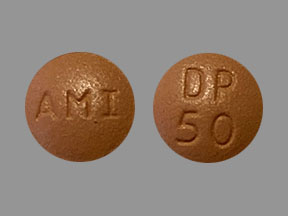
Cataflam Coupons & Savings Card – Discount Prices from $7.76
Brand for: Diclofenac potassium
My prescription
Edit
50MG, Diclofenac Potassium (30 Tablets)
Select pharmacy

CVS
$20.05
COUPON PRICE
Walmart
$7.76
COUPON PRICE
Walgreens
$12.69
COUPON PRICE
Albertsons
$15.66
COUPON PRICECataflam savings card
Show this card to your pharmacist
Walmart
$7.76
BIN
ID
PCN
GRP
019876
LHDF2BAA35
CHIPPO
LHX
Powered by
More prescriptions for rheumatoid arthritis
More prescriptions for rheumatoid arthritis
Cataflam (Diclofenac Potassium) dosage forms
Dosage Quantity Price from Per unit 50MG 30 Tablets $7.76 $0.26 50MG 20 Tablets $6.01 $0.30 50MG 21 Tablets $6.18 $0.29 50MG 60 Tablets $13.03 $0.22 50MG 90 Tablets $18.29 $0.20
| Dosage | Quantity | Price from | Per unit |
|---|---|---|---|
| 50MG | 30 Tablets | $7.76 | $0.26 |
| 50MG | 20 Tablets | $6.01 | $0.30 |
| 50MG | 21 Tablets | $6.18 | $0.29 |
| 50MG | 60 Tablets | $13.03 | $0.22 |
| 50MG | 90 Tablets | $18.29 | $0.20 |
What is Cataflam used for?
Cataflam is used to relieve pain and reduce inflammation. It is commonly prescribed for conditions such as arthritis, menstrual pain, and other types of acute pain.
Is Cataflam stronger than ibuprofen?
Cataflam, which contains diclofenac, and ibuprofen are both nonsteroidal anti-inflammatory drugs (NSAIDs) used to relieve pain and inflammation. The effectiveness of each medication can vary depending on the individual and the condition being treated. Diclofenac is often considered to be more potent on a milligram-to-milligram basis compared to ibuprofen. However, the choice between the two should be based on a healthcare provider's recommendation, considering factors such as the specific condition, patient history, and potential side effects.
Does Cataflam make you sleepy?
Cataflam, which contains the active ingredient diclofenac, is a nonsteroidal anti-inflammatory drug (NSAID). It is not commonly associated with causing drowsiness or sleepiness. However, individuals may react differently to medications, and if someone experiences unusual side effects, they should consult their healthcare provider.
Is Cataflam a muscle relaxer?
Cataflam is not a muscle relaxer. It is a nonsteroidal anti-inflammatory drug (NSAID) used to relieve pain and inflammation.
What are the common side effects of Cataflam?
Common side effects of Cataflam (diclofenac potassium) may include nausea, vomiting, stomach pain, diarrhea, constipation, headache, dizziness, drowsiness, and increased blood pressure. It is important to monitor for any severe side effects such as signs of an allergic reaction, chest pain, shortness of breath, slurred speech, or swelling, and seek medical attention if they occur.
